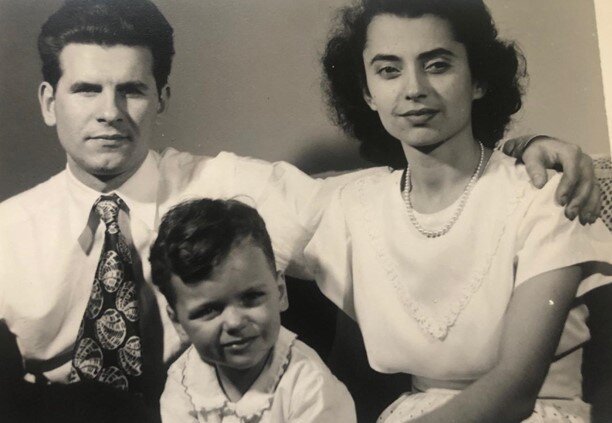With a small group of co-moderators, a cohort of OHMA Students participating in the Workshop course had the opportunity to host a seminar with Dr. Leanne Betasamosake Simpson. For three and a half years I’d been poring over her book As We Have Always Done: Indiginous Freedom Through Radical Resistance, and I was finally meeting her in person—well via Zoom. As a student of economics, I had always wanted to ask about integrating politics of decolonization, radical resistance, and black-feminist politics into disciplines like economics or STEM. The following is a meditation on the wisdom that Dr. Simpson shared in our seminar, and the personal strategies I have been cultivating based on that dialogue.
Read MoreReflections on East New York
This personal timeline essay is inspired by the East New York Oral History Project’s interactive timeline, which allows visitors to learn about the historical and political contexts of racial segregation on local, regional and national levels. Although the project’s timeline is on a grand scale, it caused me to reflect on my tenuous personal experiences in East New York, and sent me on a journey to learn more about my family history in the neighborhood.
Read MoreThe Net Worth of Social Movements and Organizing Networks
In this post, Brian Sarfo explores how Terrell Frazier's work situates the importance of relationships and humanizing the organizer through sociology and oral history. This article is the first in a three-part series exploring Terrell Frazier’s recent OHMA Workshop Series lecture, “Becoming an Organizer: Narrative, Identity and Social Action.”
Read MorePresenting History in Political Limitation: Disciplines and the Truth
In this post, current OHMA student Yutong Wang (2016) discusses her perspectives on being a historian and how politics influence historical revisionism. This article is the second in a two-part series exploring Dr. Leslie Robertson’s recent OHMA Workshop Series lecture, “Devalued Subjectivities: Disciplines, Voices and Publics.”
Read MoreThe Politics of (Mis)recognition
Robertson shows a slide of a photograph of anthropologist Franz Boaz in which she points out how Boaz was “literally holding up a blanket to cover a white picket fence behind him.” By covering the fence, Boaz tried to recreate the world he imaged, a wilderness perhaps, before European contact. By contextualizing her voice and the voices of the people involved in the representation of Cook, Robertson’s approach offered guidance as to how understanding forms of social knowledge within politically and culturally sensitive contexts is essential to how we see ourselves in relation to one another.
In this post, OHMA student Elyse Blennerhassett (2016) discusses how Dr. Leslie Robertson’s community-generated and collaborative methodologies inform her own practice in working with communities who are politically marginalized and stigmatized in the criminal justice system. This article is the first in a two-part series exploring Dr. Robertson’s recent OHMA Workshop Series lecture, “Devalued Subjectivities: Disciplines, Voices and Publics.”
Read MoreMy Deplorable Friend
In this inauguration season post, OHMA alum Jonathon Fairhead (2015) writes about applying skills he learned as an oral historian to listen deeply to a friend whose political perspectives he does not align with and as a path to understanding a country divided.
Read MoreOral History in the 'Post-Fact' Era: Exploring ‘Voices of Crown Heights’ (Part II)
This article is the second in a three-part series examining the Brooklyn Historical Society’s ongoing oral history project “Voices of Crown Heights.” In this piece, current OHMA student Rachel Unkovic (2016) focuses on how oral history can illuminate (rather than obfuscate) historical narrative even in times of confusion and conflicting ideas.
Read More





